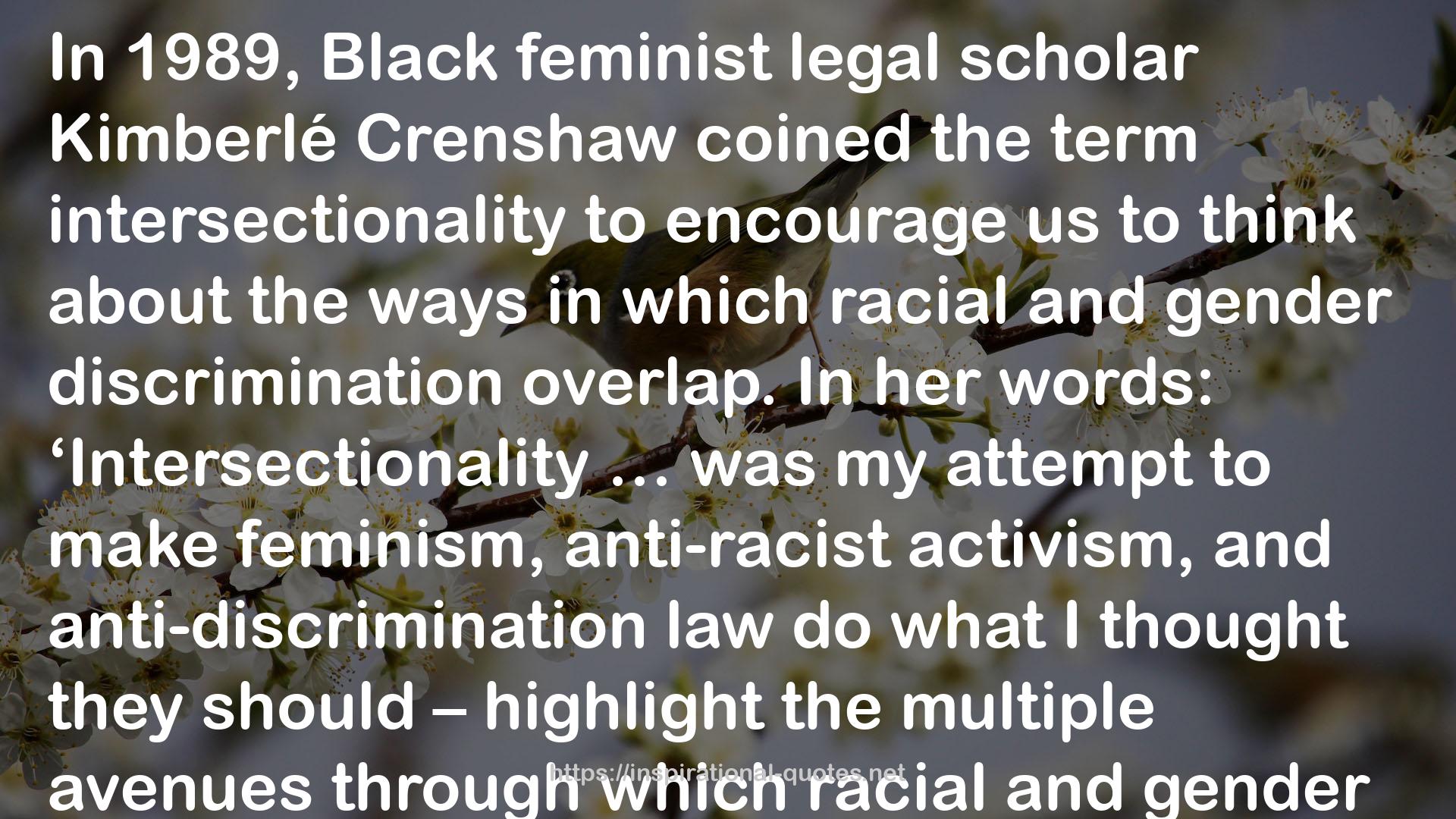" In 1989, Black feminist legal scholar Kimberlé Crenshaw coined the term intersectionality to encourage us to think about the ways in which racial and gender discrimination overlap. In her words: ‘Intersectionality … was my attempt to make feminism, anti-racist activism, and anti-discrimination law do what I thought they should – highlight the multiple avenues through which racial and gender oppression were experienced so that the problems would be easier to discuss and understand.’ Though Crenshaw originally intended the term to apply to Black women, the theory has been widely adopted and expanded. Intersectionality offers us a way to understand how multiple structures – capitalism, heterosexism, patriarchy, white supremacy, and so on – work together to harm women: women who are poor, disabled, queer, Muslim, undocumented, not white, or a combination of those things. "
― June Eric-Udorie , Can We All Be Feminists?: New Writing from Brit Bennett, Nicole Dennis-Benn, and 15 Others on Intersectionality, Identity, and the Way Forward for Feminism
